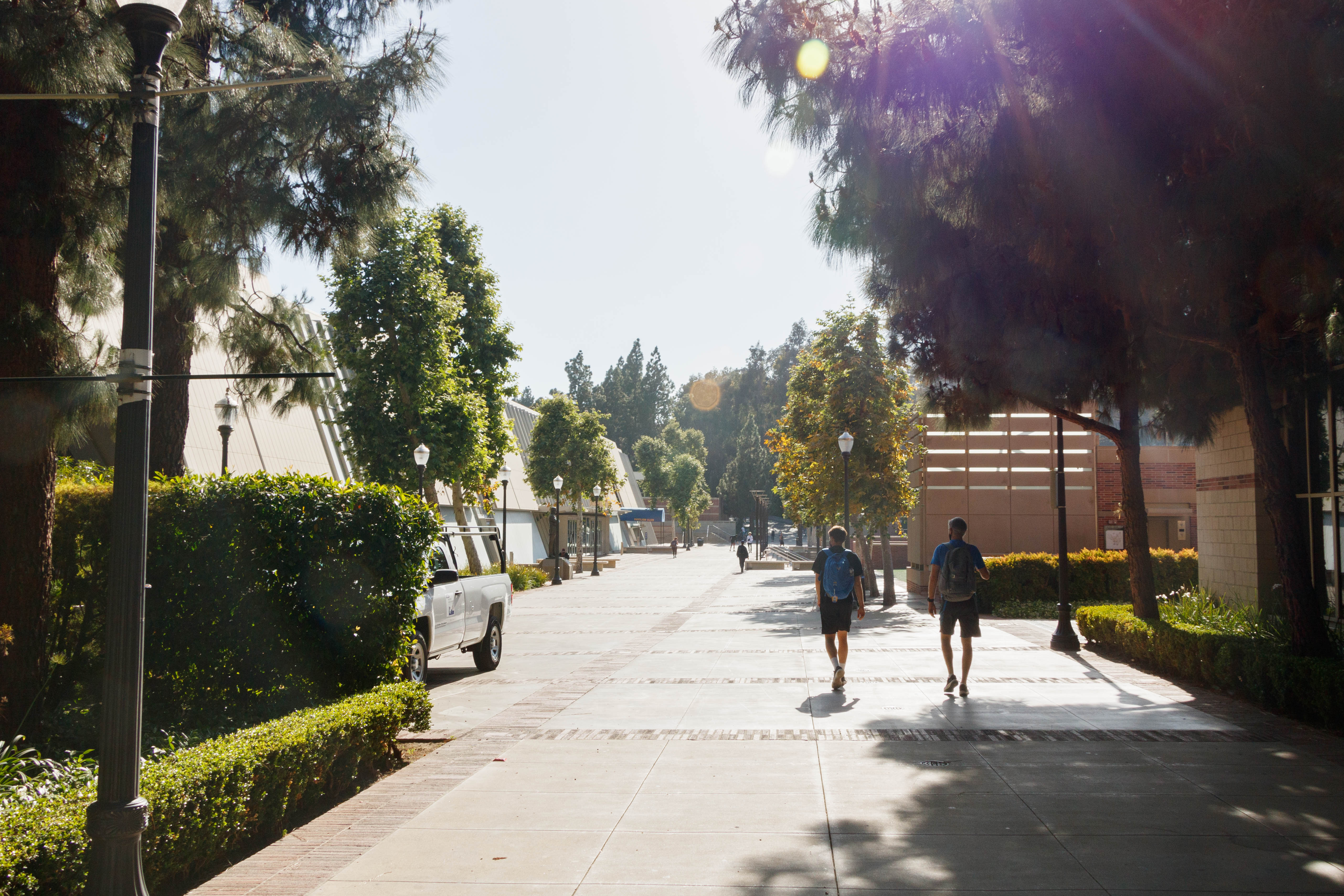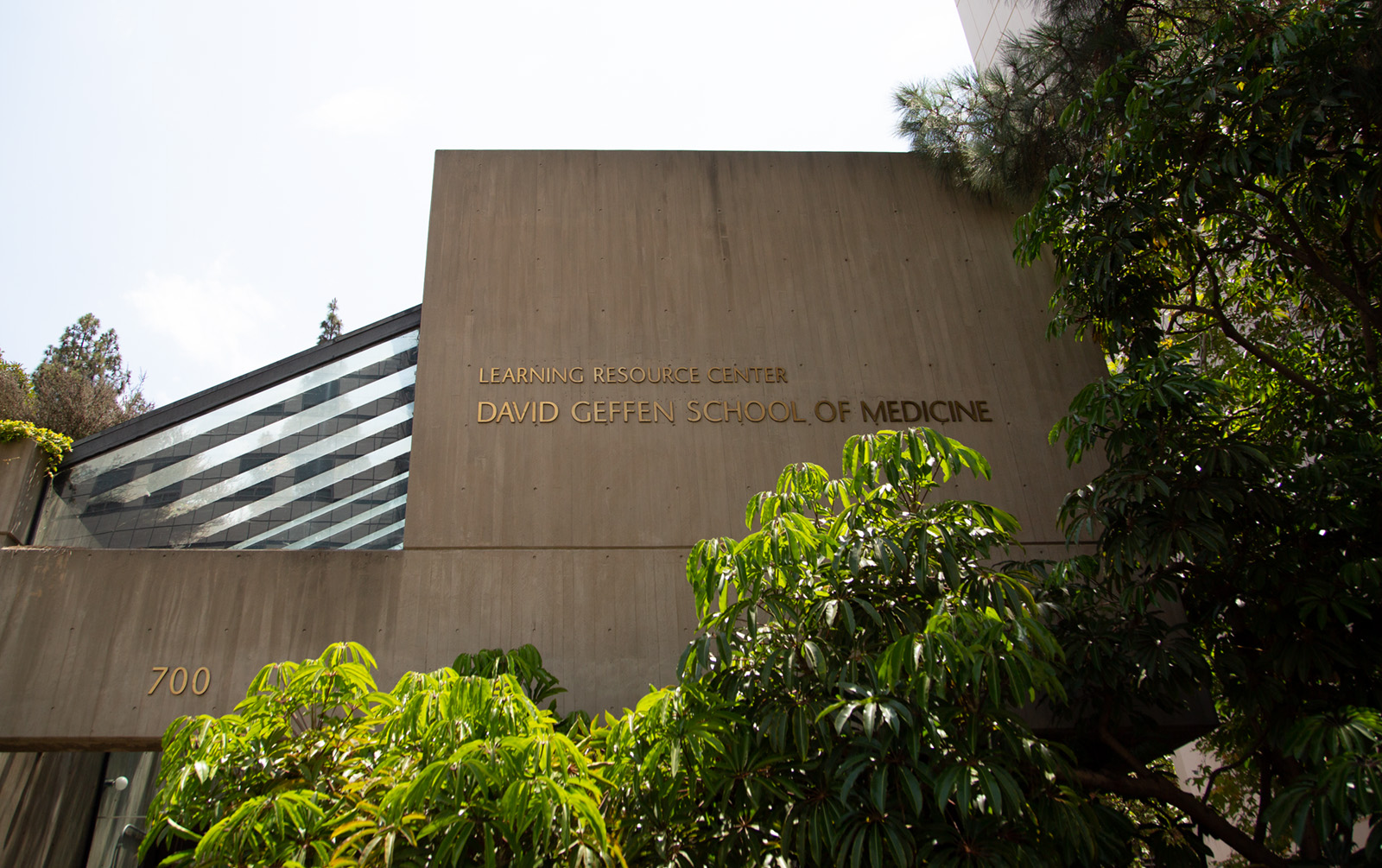North versus South Campus: Students are more than major stereotypes

The divide between North and South Campus majors creates a complex journey for students, entwined with societal and familial expectations, and emphasizes the need to appreciate the diverse community they collectively form. (Daily Bruin file photo)
By Sierra Benayon-Abraham
Oct. 5, 2023 6:04 p.m.
This post was updated Oct. 5 at 7:12 p.m.
“Hey! What major are you studying?”
This is one of the most common introductory questions students get asked, yet one that many have come to dread.
As time goes on, discussing one’s major and career pathways seem to have become a source of immense stress and anxiety for students. What was once an opportunity to share a student’s passions, desires and curiosities transformed into a decision based on social hierarchy, cultural expectations and media-influenced perceptions.
A typical stereotype that weaves its way through UCLA is the idea that South Campus students – those pursuing STEM majors – are “left brain” oriented. They are rational, analytical and good with numbers.
On the contrary, North Campus students – those studying the humanities and social sciences – are often associated with the “right side” of the brain. They are artistic, intuitive and holistic thinkers. This pervasive stereotype reinforces the idea that Bruins fall into only one of these apparently mutually exclusive categories.
But what if you fall into both? More importantly, what if you want to be both? Societal expectations and the prevalence of stereotypes on campus make it almost impossible to be seen as both logical and creative. While a student can be curious about chemical engineering, they can also be a talented artist.
Just last week, I sat in my first creative writing class of the quarter. After introducing myself to a classmate, she asked what major I was studying, and I replied, “human biology and society.”
Her reply took me by surprise. “Oh, so you’re smart. Why are you taking a creative writing class then?”
In all honesty, my immediate reaction was a sense of satisfaction that she called me smart. But I began to realize that without knowing a single piece of information about me other than my name and major, my fellow student placed me into a category – a pattern that manifests itself frequently on our campus. I subsequently felt the need to defend myself for being interested in creative writing along with science.
Students are so much more than the stereotypes associated with the major they are studying, and it is premature to make assumptions based on nothing other than their North or South Campus major. Yet, these assumptions are all too common.
What should be a decision based on individual interest and passion has become a choice influenced by societal and cultural expectations, in addition to an array of other factors that lead students to choose a major.
According to a 2021 study, 48% of subjects reported they felt their parents heavily influenced their career decisions. Moreover, almost two-thirds of parents stated that they were disappointed that their child did not follow the career path they had intended for them.
“I definitely felt a lot of pressure to kind of choose something else, and I think a lot of people feel like STEM is the way to go if you want to be financially secure,” said Claire Murphy, a fourth-year student who previously studied English but is currently a materials engineering student.
When family expectations regarding certain areas of study are instilled at such a young age, some children may not even realize their full academic and professional potential. I have met countless students who knew for their whole life they wanted to become a surgeon. When asking them why they want to pursue surgery, a common response is, “It’s what my parents and I have always wanted me to do.”
Suhani Shah, a second-year political science student, said there is a survival aspect of choosing an area of study.
“My family came from a place of, originally, not-so-much money, and then they chose careers that they knew would produce the amount of money that would keep their family comfortable,” Shah said.
When students are brought up with the priority of earning a high-paying job, passion often becomes second priority.
John Connell, a first-year computer science student, shared his own experience with various cultural pressures his relatives have imposed on him.
“I feel like to some degree, my family kind of pressured me,” Connell said. “A lot of my relatives kind of have that traditional, maybe more Asian view, of like you’re either going to be a doctor or lawyer.”
High school and college students are slowly moving forward from seeking career inspiration from actual workplace mentors and role models. Instead, students now rely heavily on media to provide motivation for occupational paths after their education.
The media imposes a certain image upon many professions that are often inaccurate or very limited. A common criticism of media outlets is that they glamorize certain fields, especially those with higher paying wages. Television characters are seen either healing every patient in their operating room or winning every criminal case in a courtroom, highlighting the charm and appeal that comes with their professions. While these forms of media may be entertaining, they are hardly an accurate representation of the day-to-day life of someone working in these fields.
While it may be true that media outlets and parental role models provide a valuable source of inspiration for many career aspirations, is this causing more harm than good? What are the long-term consequences of pushing the next generation of students into careers that they are not genuinely passionate about?
Despite the existence of these external pressures and influences, some students do choose majors for their own personal reasons and are often, as a result, looked upon very highly for remaining loyal to their own enthusiasm for a subject.
Romy Davies, a first-year English student, said that despite the popularity surrounding STEM majors, she continues to choose English.
“I feel like it teaches you more about how to live instead of how to make a living,” Davies said.
UCLA is an institution bursting with brilliance in all forms, philosophy and imagination, future scientists and the next Grammy-award winners.
Rather than contributing to the separation most feel when discussing the South vs. North Campus divide, perhaps it is time that we all take a moment to recognize that UCLA is composed of both humanities and STEM majors – that fact is what makes up the beautiful community we all get to call home.



